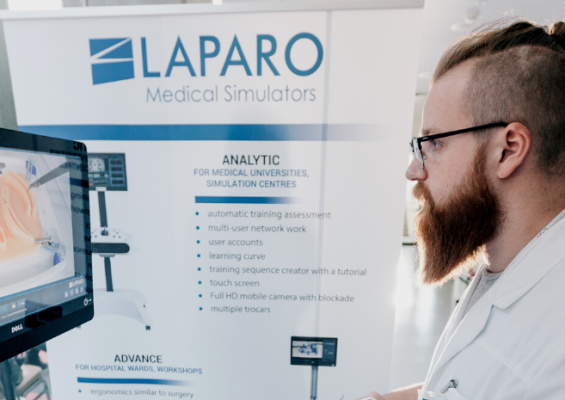Teachers Lead Tech is a learning platform for technological literacy and creativity created by Lithuanians for primary school teachers. This continual learning program provides all the tools and knowledge to successfully implement technological creativity skills in schools and for teachers themselves to master new technologies and pass these skills on to children.
Interestingly, before the platform was made, its creators had been working with children for several years, developing their skills at the Academy of Technological Creativity. But in the long run, the organizers became convinced that in order for the basic technological creativity skills to reach every child, regardless of their economic situation or place of residence, it is first and foremost necessary to work with teachers in this direction. This gave rise to the idea of creating a platform that would not only build teachers’ confidence in their technological creativity skills but also help to develop meaningful content for lessons and working with children; one that would teach every student to use technology as a tool, strengthen logical and mathematical thinking, develop the ability to solve problems, and finally, not only to use but also to develop technology.
It is also important that the platform is flexibly adapted to the teacher’s own level of technological literacy and knowledge. Beginners are gradually introduced to technological creativity from scratch, and advanced ones are offered a wide range of opportunities to use technological creativity with children.
According to Monika Katkutė, the founder of Teachers Lead Tech, during the first year of operation, the project managed to become a product, attract investment for further development, and today the Teachers Lead Tech team consists of 12 people from various fields of the technology sector. In addition, the creators of the platform are also conducting research and have already become finalists in the MIT Solve global competition for social challenges organized by MIT (Massachusetts Institute of Technology).
With the start of the second wave this month, more than 1,200 teachers from all over Lithuania will join the platform and learn to create with technology.
“For us, this is a fantastic opportunity to reach 24,000 primary schoolchildren. We aim to become a systematic tool and a constant companion for teachers in their daily work so that the ability to develop technology would become a basic skill like reading and writing. We hope to involve 80% of primary school teachers and create exemplary lessons for the whole world by September 2022, when informatics will become a compulsory subject in primary education in Lithuania,” M. Katkutė says.
According to the creators of Teachers Lead Tech, the pandemic situation not only posed unprecedented challenges to the education system but also forced the development of digital skills for both teachers and children, which facilitate the transition to higher competencies, the ability to create technology. And this, as confirmed by the teachers themselves, develops children’s independence, cooperation, mathematical thinking, increases their involvement and motivation to complete tasks, helps to reveal creativity, which is considered to be one of the most important competencies of the 21st century.
When investing in the information technology skills of Kaunas teachers and children, Kaunas City Municipality, together with VšĮ Kaunas IN, at this stage provided an opportunity for 40 teachers from 15 Kaunas schools (kindergartens, schools, primary schools, progymnasiums, and gymnasiums) to join the platform (from two to four primary school teachers from each school).
In a year-long program, starting from February 8, the teachers who will be raising their qualifications will practice computer and technological creativity skills every week and receive innovative teaching content: materials prepared for quality work in different lessons with children aged 7-12.
Schools that join the Teachers Lead Tech program will be able to prepare for the entry of IT into primary education, teachers will be able to systematically improve their technological qualifications, and students will be able to learn what today’s world is like.



